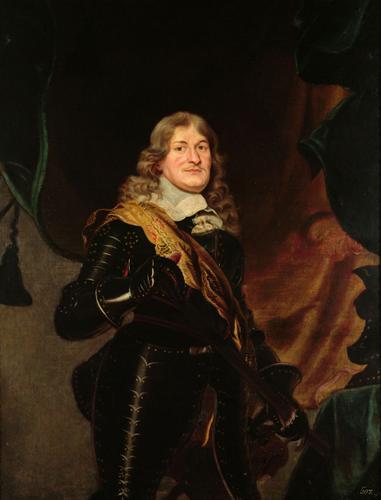Frederick William and Foreign Policy
As the prestige and power of Brandenburg-Prussia grew under the leadership of Frederick William, other European powers hoped to become allies with the growing state. By 1688, Brandenburg-Prussia’s army’s reputation was so impressive that Frederick William and his successor, Frederick I, could be selective about choosing alliances. This study will explore the relationship between Frederick William and foreign policy.

France
Frederick William had a turbulent relationship with France. In 1672, he allied with Holland, and in 1674 he invaded Alsace. This was seen as a direct threat by the French.
But in 1679, Frederick William turned to Louis XIV once more following an unsuccessful attempt to take Pomerania from Sweden. Frederick William felt isolated as a result of this failure and allying with France made him feel slightly more secure, even if it was a temporary fix. To maintain his army Frederick William needed a huge amount of money, so he welcomed foreign subsidies. The fact that Louis XIV was willing to ally with Brandenburg-Prussia illustrates the great power the state has amassed.
Religion and Foreign Policy
The extent to which religion influenced foreign policy is debated by historians. Frederick William saw catholic nations as a threat, but he also invited Roman Catholics to settle in the state. He was also willing to adopt France as an ally if he stood to gain from it. However, he also allied himself to Lutheran Sweden in an attempt to deter the spread of Catholicism in eastern Europe. As such, it is clear that Frederick William’s foreign policy was based around tactical measures to boost the prestige, wealth and power of Brandenburg-Prussia.
Sweden and Brandenburg-Prussia were the most logical allies in Eastern Europe as they were both protestant and had experience fighting against Roman Catholic countries. But despite their similar credentials, each country was suspicious of the other and they never formed an alliance. Between 1658 and 1660 and from 1675 to 1679, Sweden and Brandenburg-Prussia were at war with each other. Pomerania was at the centre of this conflict.
Germany
Despite the fact he owned Mark and Cleves in north-west Germany, Frederick William rarely got involved in German affairs. He identified himself as a Brandenburg-Prussia rather than a German, even though north German princes saw Frederick William as a protector of their religion.
MLA Citation/Reference
"Frederick William and Foreign Policy". HistoryLearning.com. 2025. Web.
